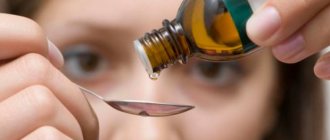Help the author of the site, tell your friends.
Girls, think before you have an abortion. Don't ruin your life. As a result, you can become childless. And interruption, even for a short period of time, is the murder of a tiny person. Give birth and send it to an orphanage. Make childless couples happy.
If you are firmly set on abortion, then exclude amateur activities. Go to a normal clinic or consultation, trust the doctor. Otherwise you may remain crippled.
Tansy for abortion
Most plants have certain properties that have found their use in folk medicine. For example, there is a list of herbs that have been used since ancient times to terminate an unwanted pregnancy in the early stages.
It is important to understand that some abortifacient plants can be toxic to the human body and termination of pregnancy is just a side effect. Therefore, you should use extreme caution when choosing medicinal herbs and study all possible consequences.
Action of abortifacient plants
All abortifacient plants have slightly different mechanisms of action. Many herbs promote increased contraction of the muscle fibers of the uterus, which causes fetal rejection. This process is usually accompanied by the following symptoms:
- sharp pain in the lower abdomen;
- bloody discharge;
- chills all over the body.
general malaise;
In addition, there are herbs that cause fetal death in the early stages. Their action is aimed at inhibiting the activity of the central nervous system, in particular the brain. This is ensured by toxic substances contained in different parts of plants.
Gestational age for use
In modern medicine, there is still no method of terminating pregnancy in the early stages that would be absolutely safe for the mother’s body. During the abortion procedure, a number of consequences and complications can occur.
However, the sooner the interruption occurs, the easier the body will tolerate it and the higher the likelihood of a speedy recovery. Abortion herbs can be taken up to 6 weeks; at later stages, only surgical intervention is possible.
List of herbs
All abortifacient herbs have a different mechanism for terminating pregnancy in the early stages. For example, water pepper, cumin, senna, St. John's wort and yarrow cause uterine tone and fetal rejection. And oregano, anise and red clover help increase estrogen levels.
Some essential oil plants can inhibit the activity of the central nervous system of the fetus. These include tansy, wild rosemary and sage.
But there are abortive plants that, in addition to terminating pregnancy in the early stages, lead to serious complications for the mother’s body. These include:
- goat's rue - sharply increases blood pressure;
- adonis - can cause a heart attack.
Using abortifacient herbs uncontrollably is very dangerous, even in the early stages of pregnancy. Many of the plants are poisonous, and therefore can lead to serious consequences.
Bay leaf
Bay tree leaves are widely used not only in cooking, but also in medicine. In particular, they are used to provoke miscarriage and termination of pregnancy in the early stages. This effect is explained by the high content of essential oils, which provoke the development of bleeding. At the same time, tannins and resins can cause uterine contractions.
The use of bay leaves to terminate pregnancy in the early stages is carried out in two stages. The first step is to prepare a decoction.
- Pour about 100 g of leaves with a glass of boiling water. In this case, the plant does not have to be crushed.
- Place the workpiece on low heat, bring to a boil and cook for another 13-15 minutes.
- Then cool the herbal drink, strain through several layers of gauze and pour into another container.
The decoction should be used in small portions throughout the day. You can make a tampon from the remaining leaves and insert it into the vagina overnight.
Tansy is one of the medicinal plants that is quite dangerous for consumption. It is better to terminate pregnancy in the early stages with the help of other herbs. The consequences of using this plant include:
- severe intoxication of the body, which may be accompanied by vomiting, a sharp increase in temperature and blood pressure;
- liver dysfunction;
- severe uterine bleeding.
Early termination of pregnancy is just one of the possible effects. It is better not to use tansy as a folk abortifacient, but to turn your attention to other herbs.
Oregano, or, in other words, “matryoshka”, is widely used in folk medicine for the treatment of gynecological diseases. In a non-pregnant state, it has the following properties:
- normalizes the menstrual cycle;
- eliminates inflammation;
- promotes favorable conception.
However, there is also the opposite effect; oregano can provoke abortion. It contains biologically active substances that lead to severe uterine tone and fetal rejection.
To prepare a decoction of oregano, you need to take a tablespoon of chopped herbs and pour two glasses of boiling water over it. Cover the broth with a towel and let it brew for 40 minutes. The resulting product must be used throughout the day in small portions.
If the herb is used incorrectly and uncontrolled, severe bleeding may develop.
A decoction based on elecampane can be used both for late menstruation and for termination of pregnancy in the early stages. To prepare this remedy, you need to pour two teaspoons of herb root with 1.5 cups of boiling water, put on low heat and boil for 4-6 minutes.
The resulting drink should be wrapped in a terry towel, left for half an hour, and then strained. The decoction is drunk 50 ml twice a day.
Is it possible to eat parsley during pregnancy?
Parsley during pregnancy has certain contraindications, mainly depending on the period and course of pregnancy.
In the first trimester
At the very beginning of pregnancy, the female body experiences great stress. The hormonal background changes significantly, adjusting to protect the fetus from adverse effects. Immunity in the first trimester decreases and becomes vulnerable to bacteria and microorganisms. Eating parsley in the early stages increases the body's protective properties.
If it is so useful, then the question arises: why shouldn’t parsley be consumed by pregnant women? The fact is that it contains substances that tone the muscle organs, because of this, in the early stages of pregnancy the likelihood of miscarriage increases.
Note. In ancient times, parsley was a popular remedy for abortion. In the first weeks of the unwanted situation, the woman consumed large amounts of parsley to cause a miscarriage.
If a pregnant woman loves parsley and has not had cases of uterine tone, greens are included in the diet in moderation as a seasoning for dishes.
In the second trimester
The most tender period of pregnancy is already over, and the body has become accustomed to all the changes. If there were no problems with tone in the first trimester, then in the middle of pregnancy you can safely include parsley in your diet. It contains calcium, which is important for the formation of fetal bones, has a beneficial effect on the nervous and circulatory system, and saturates the pregnant woman’s body with iron.
Despite all the benefits, greens are included in the diet with caution. In the second trimester, it is recommended to consume no more than one bunch per day, unless there are special recommendations from a doctor.
Important! Pregnant women at any stage are allowed to eat only fresh or dry greens. Parsley juice contains a high concentration of active substances; its use can lead to uterine hypertonicity in all trimesters of pregnancy.
In the third trimester
At the end of pregnancy, many women suffer from anemia. This is a dangerous condition; if left untreated, it will lead to oxygen starvation of the child. Moderate consumption of greens will protect the mother’s circulatory system from loss of hemoglobin. The calcium in the composition has a beneficial effect on bone tissue and strengthens the teeth of a pregnant woman. Parsley reduces swelling - this is also a common problem at the final stage of pregnancy.
The recommended amount of greens is one bunch, no more than once a day. Frequent use threatens uterine hypertonicity, which in the last stages is dangerous for premature birth.
Possible consequences
Medicinal herbs contain a large number of biologically active substances, essential oils, alkaloids and resins, which can be extremely toxic to the human body.
Despite the fact that herbs are sold freely in pharmacies, no one can guarantee their safety. That is why it is important to strictly follow the instructions and under no circumstances consume herbal decoctions in excessive quantities.
If the permissible dosage is exceeded, there is a high risk of developing the following side effects:
- profuse uterine bleeding caused by strong contraction of smooth muscles;
- incompleteness of the abortive process, which can cause tissue infection and the development of sepsis;
- development of inflammatory processes and provoking pathologies of the female reproductive system.
The use of herbs to terminate pregnancy is only a folk method, but not an official medical procedure. That is why, in order to avoid side effects, complications and undesirable consequences, it is recommended to consult a doctor for a personal consultation.
Is it worth and is it possible to terminate a pregnancy?
Forced pregnancy loss is a gross interference in the natural course of events, so every woman, before deciding to take such a step, should think about and become familiar with the consequences of her actions.
A preparation made from parsley causes severe spasms of the uterine walls. The action of the drug is accompanied by severe pain, nausea and vomiting, and headache are possible.
Did you know? Gladiators of Ancient Rome, believing in the healing properties of parsley, ate it before battle.
- What are the consequences of forced abortion?
- bleeding that does not stop (a woman may die from blood loss);
- incomplete detachment of the embryo (inflammatory process, rotting in the uterine cavity);
- maintaining pregnancy in the presence of bleeding;
- problems with conception later;
- problems with carrying the next pregnancy.
Induced abortion is also not safe and may have the following complications:
Separately, I would like to dwell on such a fact as an unsuccessful abortion. The fruit is preserved, but the question arises as to how much the grass harmed it. In this case, you will still have to consult a doctor, since leaving such a pregnancy means dooming the unborn child to deformities or pathologies. The danger in using the traditional method also lies in not knowing the exact dosages.
Important! Myristicin in parsley can cause seizures, significantly damage the kidneys, and cause hallucinations.
To summarize the above, it should be noted that modern methods of contraception make it possible to eliminate unforeseen and unwanted situations, as well as preserve health. If necessary, it is better to contact specialists so as not to expose yourself to danger.
How to get rid of an unwanted pregnancy
- Pregnancy
— 28.12.2017 28.12.2017 2 7362
There are different situations in life.
Including the onset of unwanted pregnancy. Unwanted pregnancy most often occurs in early youth, when a young woman took herself lightly, had unprotected sex, and only later realized it. It also happens that a young woman, with a husband, a good job, an apartment, a car, and quite wealthy, does not want to give birth to a child at the moment, but wants to continue her career ladder. Or there are cases of unwanted pregnancy in a woman with many children. “I already have four (five, six), how about one more”!? - she thinks. Each unwanted pregnancy has its own story, but each ends the same way - abortion.
Medical termination of pregnancy, reviews of Mifegin
Medical termination of pregnancy has very different reviews . Qualified specialists today can recommend various effective medications to a woman who wants to terminate a pregnancy. The product prescribed by a specialist can be purchased at your nearest pharmacy. At the same time, you should be aware that medical termination of pregnancy can have serious consequences. Due to the risk of severe bleeding, medical abortion must be performed under medical supervision.
Medical abortion, also known as pharmaceutical abortion, is an effective means of ending an unplanned or unwanted pregnancy. As a rule, women take pills such as Mifegin. Patients speak of medical termination of pregnancy as an excellent alternative to surgical abortion. True, pharmabort is even more limited in terms of time. Today on the Internet you can find a huge amount of information about medical termination of pregnancy. A woman's doctor can also suggest sources of useful information.
From reviews of medical termination of pregnancy, we can conclude that this method does not affect the woman’s body as much as surgical intervention. Most women respond positively to the pills, in particular Mifegin. Abortions performed with their help are much easier to bear. It is worth noting that not only Russian doctors, but also gynecologists throughout the civilized world resort to medical termination of pregnancy.
How to get rid of an unwanted pregnancy
It depends on how far along the woman decided to terminate her unwanted pregnancy. Doctors recommend doing this before six weeks. In general, the earlier an abortion is performed, the safer it will be for a woman. There are several types of abortions.
– medical abortion. A gynecologist prescribes special abortion pills to a woman who has decided to get rid of an unwanted pregnancy.
Abortion pills have a depressing effect on the embryo, stopping its development. The maximum gestational age for medical abortion is four to six weeks. This is 49 days from the start of the last menstruation. Medical abortion is the most gentle of all. Because there is no surgical action. Internal organs are not affected, and most importantly, there is no risk of not getting pregnant in the future. Moreover, emotionally and psychologically, taking a pill is easier than going under the knife. The only downside is that the effect of abortion pills greatly “hits” the female hormonal system. In addition, if a woman has any chronic diseases, she must be under the supervision of a doctor.
What pills can be used to terminate an early pregnancy?
Two types of medications will help get rid of an unwanted pregnancy. Some cause uterine contractions. These are Cytotec (Misoprostol) and Oxytocin (the latter intramuscular). Cytotec should be taken together with Mifepristone. Others are based on the action of hormones. These are “Postinor”, “Mifepristone”, “Sinestrol”, “Escapelle”. It makes sense to take “Postinor” and “Escapelle” in the first forty-eight hours after unprotected sex; there is no point in taking it later.
In Russia, Chinese pills have recently begun to appear in order to terminate an unwanted pregnancy. They are no better than Russian ones. But they have one big disadvantage. This is because the instructions are written in Chinese. If the instructions are translated into Russian, then there will be no problems with the dosage, but what if not?
If the pills to terminate an unwanted pregnancy do not work, the pregnancy will still have to be terminated, because the destruction of the embryo has already begun.
When taking tablets, contraindications should be taken into account. This is an ectopic pregnancy, various inflammations of the genital organs, with poor blood clotting, with oncology and if there are fibroids or scars on the uterus.
– a vacuum abortion (also called a mini-abortion) will help terminate an unwanted pregnancy at an early stage. A mini-abortion is performed between five and seven weeks of pregnancy. This abortion already includes surgical intervention. Using a special vacuum apparatus, the embryo is pulled out of the woman’s uterus. The qualifications of the doctor who performs such an abortion are of great importance.
– surgical abortion. The longer the pregnancy, the more complications it will bring to the woman.
Because if the unwanted pregnancy lasts for a longer period, the doctor will have to open the cervix. The already formed embryo is removed in parts. Such a surgical abortion, to get rid of an unwanted pregnancy, is performed at a period of six to twelve weeks. - premature birth. This is what is called termination of pregnancy at the very latest, up to 22 weeks. It is a very rare case that they lead to premature birth. Usually either due to medical problems or social ones (deprivation of parental rights, death of a husband, rape). Premature birth is no different from normal birth. But the baby will no longer be brought to the mother. A caesarean section may also be performed.
Benefits for the female body
If a woman is just planning a pregnancy, she should definitely include this greenery in her diet: add it to any dishes or eat it fresh. Vitamin E in greens has a beneficial effect on the process of conception, as does vitamin B9 (folic acid), which doctors recommend that all women planning pregnancy take.
Important! If a woman has problems conceiving, she should consult a gynecologist. Eating parsley only supports the female body, but does not cure serious problems.
How to get rid of an unwanted pregnancy using folk remedies
Some herbs and remedies will help you prevent an unwanted pregnancy at home. For example, ascorbic acid.
Ascorbic acid for abortion.
To terminate a pregnancy using ascorbic acid, you need to calculate how much it will be needed for an overdose to occur. Ascorbic acid ( if consumed in excess ) tends to cause bleeding in the uterus. Because of this, it is sometimes used to terminate an unwanted pregnancy.
I want to warn you that not only bleeding in the uterus will appear, but at the same time the excitability of the nervous system will increase, the digestive system will be upset, the kidneys and liver will be destabilized.
Parsley for unwanted pregnancy.
Parsley is used not only in cooking. This seemingly completely harmless herb contains many biologically active substances. And at very high concentrations they can even cause abortion. An “overdose” of parsley may cause hallucinations and seizures. Such a high concentration of these substances can only be obtained in a decoction. Previously, this property of parsley was used by shamans and healers. They also terminated unwanted pregnancies using parsley infusion.
Oregano for abortion.
Oregano for abortion should also be used in the form of a decoction and very carefully. This herb also contains many biologically active substances that affect uterine contractions.
Bay leaf for abortion.
Our grandmothers would most likely recommend terminating an early pregnancy using bay leaves. Of course, bay leaf also contains biologically active substances that affect the development of the fetus and contract the uterus. And a decoction of bay leaves can do a lot of business.
Tansy decoction to terminate an unwanted pregnancy.
Tansy works in the same way as bay leaf. It can also cause missed abortion.
The use of herbal infusions to terminate an unwanted pregnancy is not controlled in any way. It is impossible to maintain the required dose of biologically active substances in a herbal decoction. Having prepared a decoction of herbs (be it bay leaf, parsley or oregano) and drunk it, you will not be able to understand with exact certainty whether a termination of pregnancy has occurred or not. And the biologically active substances of the herbal infusion have a very bad effect on the development of the fetus and can cause various deformities.
Milk with iodine for abortion.
This method of abortion is quite common on the world wide web. Iodine is a potent substance. It has a particularly strong effect on a pregnant woman. If you drink milk with iodine, the embryo may die right in the uterus (frozen pregnancy). If a dead fetus remains inside the mother’s body for a long time, extensive intoxication will begin. In addition, inflammation of internal organs, internal bleeding, disruptions in cardiac activity - this is the minimum that iodine with milk can “do.”
How does parsley affect a woman’s body during pregnancy?
Women, especially young ones, prefer natural methods of abortion. The reasons for this are very different. Medical abortion is the safest method, but natural abortions are also used quite often. Some herbs are identified in herbal medicine as capable of stimulating menstrual flow if it does not occur.
The child requires the mother’s body to produce certain hormones - they will act as protective agents during pregnancy and supply the fetus with the substances necessary for development. The baby and the placenta are foreign objects in the body and, in the absence of the necessary hormones, they are rejected by the body without medical intervention. But this method may have side effects.
Therefore, they are also considered to eliminate unwanted pregnancy. Many plants with a high content of essential oil are undisputed drugs for miscarriage, although the presence of essential oils in a plant does not mean that it acts in this way. To assess the possibility of miscarriage, you need to understand how it works. The goal of most natural abortion methods is to stop the production of nutrients or hormones necessary for the development of the fetus.
Can pregnant women eat parsley?
According to doctors, parsley for pregnant women is a source of essential vitamins and microelements. At the same time, it must be used wisely, as it has contraindications. This plant has long been used both as a seasoning and as a healing agent against diseases. But while expecting a baby, even these healthy greens can harm the health of the expectant mother and fetus.
The unique composition of parsley
It contains many vitamins and microelements:
- B vitamins – have a positive effect on the nervous and cardiovascular systems;
- Vitamin C – helps the body fight infections;
- vitamin PP – has a positive effect on metabolism;
- vitamin A – slows down cell aging, improves immunity;
- vitamin E – increases the chances of conception;
- vitamin K – promotes rapid healing of skin wounds;
- magnesium – supports muscle tissue and the nervous system;
- calcium – strengthens bones;
- iron – helps the circulatory system;
- zinc – stimulates brain function and increases sexual activity.
Taking into account the rich composition of parsley, it definitely benefits the body, however, during pregnancy there are periods when it is strictly contraindicated by doctors.
Benefits during pregnancy
Eating parsley during pregnancy is possible and even necessary! Its beneficial properties not only ease a difficult period for the expectant mother, but also strengthen the baby’s health. Let's look at the positive properties of this plant:
- a large amount of iron strengthens the body of the mother and fetus, prevents anemia;
- folic acid has a positive effect on the growth and development of the child in the womb;
- removes toxins from the body and is also a source of minerals, vitamins B1, B2, A, PP, C, E and K.
- fights flatulence and eliminates bloating;
- has a beneficial effect on the gastrointestinal tract;
- improves vision;
- has a mild diuretic effect.
Thus, this seasoning during pregnancy has a positive effect on the body of both the child and the mother.
Possible harms of eating parsley during pregnancy
Residual fetal tissue may remain in the body after a miscarriage. Sometimes this tissue comes out naturally, and then there is nothing to worry about. But if it persists, it can cause harm to the woman and must be removed by a doctor. If you have chronic diseases, it is important to seek help from a medical professional to prevent possible side effects.
In small doses and short-term use, parsley is safe for the body and has no side effects. But if you are allergic to celery, then you should not eat it. In large quantities, the plant can cause anemia, kidney and liver problems.
Special precautions during pregnancy:
- During the first trimester of pregnancy, parsley increases the risk of serious birth defects for the fetus. Therefore, it is excluded from the diet.
- In the second and third trimester, consumption in food is permissible, but in natural quantities. The same recommendations apply during lactation.
Parsley should not be consumed by people with pathologies regarding blood clotting - it can speed up bleeding. The plant should also be taken with caution by diabetics due to its ability to lower sugar levels. Do not use it with a medicine to lower your blood sugar.
By knowing how herbs work in the body and their potential for abortion, you can decide for yourself whether to use them. But in any case, you should consult a doctor before choosing one or another option.
What harm can she do?
Please note that excessive consumption of these greens can cause irreparable harm to the woman and the fetus. In ancient times, healers used it as a means to terminate pregnancy. A decoction of the plant, drunk in large quantities, could cause abortion. Is this true or a myth?
In fact, parsley can actually cause miscarriage or premature birth. Its unlimited use has a stimulating effect on the body, which leads to contraction of the muscles of the uterus.
In addition, its use in increased dosages can cause hallucinations, loss of consciousness and convulsions.
Nothing bad will happen to the health of the woman and the fetus if you use this spice in moderation. Let's consider what positive effects its properties have at different stages of gestation.
In the early stages
The first weeks of pregnancy are the most important. Therefore, nutrition during this period should be balanced and healthy. In the early stages, this plant enriches the body of a woman and child with beneficial microelements and vitamins and strengthens the immune system. Medicinal herbs can be used in the prevention of treatment for colds and flu.
One of the main problems of pregnant women in the early stages is toxicosis. A weakly concentrated decoction of this green will help eliminate the gag reflex and relieve nausea.
With the correct dosage, it will improve digestion, saturate the body with calcium, phosphorus, and increase hemoglobin. Bowel movements will become regular and constipation will disappear.
Please note that in the early stages you should absolutely not use the root of this herb, as it stimulates miscarriage. If you want to enjoy this seasoning, then use only its leaves.
In the later stages
In late pregnancy, the seasoning can be used as a diuretic if the expectant mother does not have kidney problems. In the later trimesters, many women suffer from various types of edema. Using greens in your diet will help solve this problem.
While expecting a baby, the task of every mother is to strengthen her immune system and carefully monitor her health. The high content of vitamins in greens, including vitamin C, helps strengthen the immune system.
The last weeks of gestation become the most difficult for many women - the heart and blood vessels receive a double load. The magnesium and potassium contained in this “green doctor” helps the expectant mother cope with this problem. The functioning of the cardiovascular system is normalized.
This aromatic herb will also help pregnant women transform in appearance. Due to a lack of nutrients and microelements, expectant mothers often suffer from hair loss, brittle nails and deteriorating skin condition. The calcium, fluoride and iron that this plant contains will help improve your complexion and strengthen your hair and nails.
It is possible to increase the dose of consumption of this seasoning in later stages only in one case - if labor is delayed. If the baby is in no hurry to be born, then parsley will stimulate labor. However, before deciding to increase its amount in the diet, it is better to consult a doctor.
The plant is recommended to be added as a seasoning to dishes. It can also be drunk in the form of a low concentration decoction.
Contraindications and harm
It’s worth highlighting why you can’t eat parsley while pregnant. The main contraindications include:
- period up to 12 weeks of pregnancy;
- cholelithiasis;
- pyelonephritis;
- liver diseases;
- epilepsy;
- calcium metabolism disorder;
- individual intolerance to the component.
Side effects include an allergic reaction, presented in the form of a rash or irritation on the skin. If such a problem appears, then you need to take an anti-allergy remedy approved for pregnant women and no longer add this type of greenery to your diet.
How much can you eat?
How much parsley can you eat without harming the health of your child and yourself? There is no clear answer to this question. It all depends on your preferences and appetite. A moderate amount of greens will not harm pregnancy in any way. Negative consequences can arise if you eat, for example, a whole bunch of greens in one sitting.
Many women's taste preferences change dramatically during pregnancy, which means she may well become addicted to greens. In this case, do not forget about possible unpleasant consequences.
You can consume it during pregnancy in small quantities by adding a few of its leaves to a salad or any other dish. Decoctions of this plant should be of low concentration.
Thus, parsley for pregnant women is a valuable product that increases immunity and strengthens the body as a whole. Therefore, you should not refuse it.









